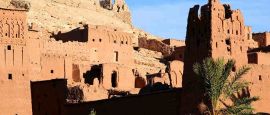Money & duty free for Morocco
Exchange rates:
Moroccan DirhamC$1 = Dh7.6
€1 = Dh10.62
£1 = Dh12.64
US$1 = Dh10.21
Currency & Money
Moroccan Dirham (MAD; symbol Dh), where every 100-unit is called a santim. Notes are in denominations of Dh200, 100, 50, and 20. Coins are in denominations of Dh10, 5 and 1, as well as 20, 10 and 5 santim coins.
Cash is preferred in Morocco, but Mastercard and Visa are accepted in most hotels and restaurants. Using other types of credit cards may face some challenges.
The Moroccan Dirham is a non-convertible currency, meaning it isn't traded internationally. You may, however, import or export a small amount (below Dh2,000).
There is no limit on the amount of foreign cash you can bring into Morocco.
Euros are the easiest foreign currency to exchange and use licensed bureaux de change only – usually there is one at the airport. Keep the receipt issued as you may need to change your unspent Dirham back into the original national currency upon departure.
Avoid bringing Scottish or Northern Irish banknotes as they can't be exchanged in Morocco.
Morocco duty free
The following goods may be imported into Morocco without incurring customs duty:
Firearms and ammunition, narcotics, and publications containing immoral, sexual or offensive material.




 You know where
You know where
